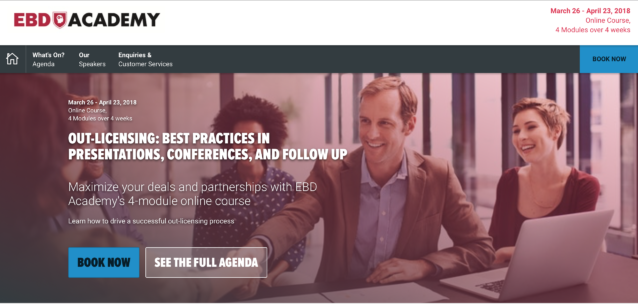Last week was another jam-packed week of meetings, this time at BIO-Europe Spring in Amsterdam. It is only our third appearance at this event, having participated in previous BIO Europe Spring conferences in 2009 (Milan) and 2016 (Stockholm).
As usual, we did not attend a single company presentation or plenary session. We’ll leave it up to others to discuss those.
However, in our formal and informal meetings, there were a few items which caught our attention:
Muscles – Pharma continues to flex its muscles when it comes to driving licensing activity. For example, executives from several companies expressed their frustration at their inability to get investor or Pharma attention for their small molecule oncology drug candidates.
Indeed, we often advise our clients to take a very close look at their pipeline from a license-ability perspective, and not purely by a financial or even stage of development perspective.
A highly advanced in an indication which does not interest Big Pharma may be difficult to transact. But earlier-stage assets which fit what the industry is looking for may be highly transactable.
Now to be perfectly clear, this is a situation we do not like. Indeed, we’ve written previously about therapeutic areas with enormous unmet medical need and limited candidate development, such as pain management and depression. Some areas, like obesity, are essentially unpartnerable, for a variety of reasons.
There are always exceptions. For example, the recent Lundbeck acquisition of Prexton for a Phase I candidate may appear surprising to some. On the surface, a candidate without Phase II data in a difficult area like Parkinson’s may appear un-licenseable until after the Phase II data are available. And we may never truly know the details of the data or the terms which led to this transaction.
However, while the probability of a license may be low, it does not necessarily mean that it is zero. The number of companies looking to in-license Phase I candidates for Parkinson’s may be low. But a well-communicated, well-run process may yield a seemingly surprising result.
Meetings – For us, meeting quality was quite high. Aside from one individual camping our business cards out after a meeting, nearly all of our meetings were with folks at the appropriate organizational level. And, our Acceptance Rate was an excellent 37%.
While the Attendee/Company ratio was about the same as usual (~1.75), is it possible that companies are actually sending fewer, but higher-level folks to these conferences?
It’s hard to say, since that ratio also includes Exhibitors. Or perhaps we’re just seeing more “grey hairs” and fewer Analyst-level folks? Will this trend (if it exists) continue into the massive BIO event in June?
Regardless, now is when the fruits of these efforts are harvested. Follow up is (and should be) a process which requires solid organization and communication. And, every person with whom we met received a LinkedIn invitation, unless we were already linked. It is a step which we highly recommend.
Mustard – This word refers to many more things than the yellow sauce. In fact, mustard can mean many things, as in “This game was mustard.” We’ll leave it up to you to explore this further.
We think BIO-Europe in Amsterdam cut the mustard in a few different ways:
- The exhibition and partnering booths were divided between two halls, but the second hall was on the same floor and quite close;
- There was no shortage of good restaurants and watering holes nearby;
- Everything was close to the airport;
- Need a taxi? Two minutes at the most.
We note that BIO-Europe Fall will be outside of Germany, perhaps for the first time? And BIO-Europe Spring in 2019 will be in Vienna. We would like EBD to continue their expansion of locations for both Spring and Fall conferences. BIO-Europe Spring in Malaga sounds nice…
~ * ~ * ~ * ~ * ~ *
Fundraising? Then consider attending the RESI conference in Toronto in April.
The RESI series of conferences are a unique forum for accessing Seed investors, including family offices who don’t make the headlines and can be difficult to access. Use promo code LACERTABIO and save $100 off the registration fee.
~ * ~ * ~ * ~ * ~ *
Don’t forget to join us on March 26th for our online course on Out-Licensing!
This four-week course focuses on the marketing and communications aspects of out-licensing, such as presentations, meeting invitations, and all the little bits and pieces which can make the difference between a process full of meetings and CDAs and a process that languishes.
SaveSave
SaveSave
SaveSave
SaveSave
SaveSave


